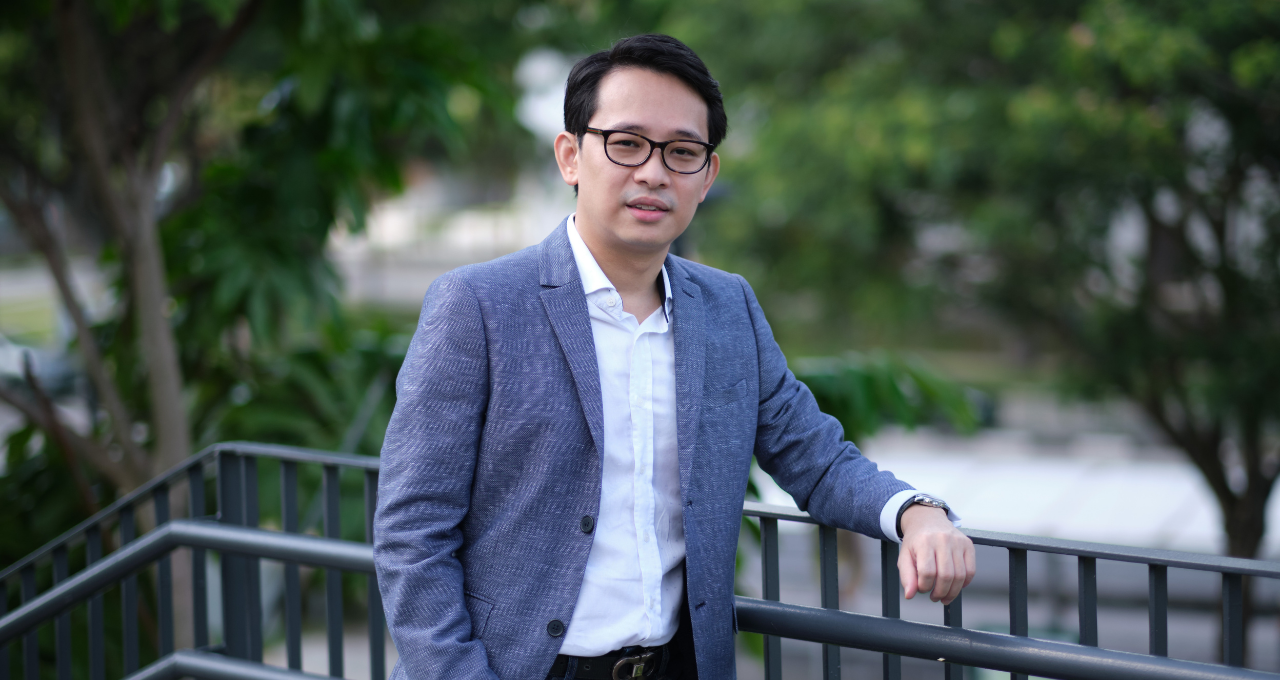
Much has been said about the power of influencers as both a marketing tool and a pop-cultural phenomenon. However, while the actual ability of an Instagram influencer to drive revenue is still up for debate, change-making influencers with real sway need not only exist in the realm of social media.
For example, in the corporate world, simply being a leader with a lofty designation and cult of personality is no longer a guarantee of influence. Instead, mastering the intricacies of various leadership styles goes a long way in gaining the support and buy-in of colleagues and cultivating connections to align one’s agenda with that of other stakeholders. Such far-reaching effects of situational leadership are just one of many strategies Esmond Ng picked up during the SMU Master of Human Capital Leadership (MHCL) programme.
“Although everyone has a default style of leading, the interactive sessions allowed us to practise the other leadership styles that are effective at influencing different employees,” says Esmond, who graduated in 2019.
“While this all seems like common sense, it takes persistence to apply it religiously at work, and the MHCL programme did a good job in incorporating this as part of the curriculum.”
Now, Esmond is a Principal Manager for Enterprise Programmes at Workforce Singapore (WSG), where he helps companies meet their hiring and transformational needs through assistance programmes. His job involves engaging stakeholders to formulate and review suitable interventions, securing the necessary budgets, and working closely with partners to implement the assistance programmes.
“My time at WSG made me realise how much of a novice I was in the arena [of human capital management],” admits Esmond, who has been with the statutory board for over eight years.
“For me, the MHCL programme has a good balance of depth and breadth. It provides human resources professionals with a rigorous grounding to be able to advocate for human capital resources, so that our human assets (together with other factors of production) can contribute meaningfully to the organisation’s business objectives.”
Esmond’s WSG career also highlighted how the notion of lifetime employment is vastly irrelevant in an economy disrupted by technological advancements and the devastating effects of the pandemic. Being a force of influence also requires the ability to look within and identify gaps in one’s skill sets to improve upon to maximise reach and achieve success. Due to such self-reflection, Esmond decided to return to SMU’s roster of robust postgraduate programmes to further his professional competencies.
Before making the Dean’s List and graduating with a 4.0 GPA during his MHCL studies, Esmond had completed a Master of Science in Applied Economics in 2011 while working in capability building at the Singapore Business Federation (SBF) — a business chamber championing the interests of the business community.
“Inwardly, I love challenges,” quips Esmond, who read Business Economics and International Business during his undergraduate studies.
“When the run gets too easy, I tend to seek out the hills. It’s not just the surmounting of the hill that I enjoy but also the struggle uphill which keeps me grounded so that complacency does not sneak in. Both postgraduate programmes were motivated by my experiences at work and the realisation that the more I knew, the more I did not know.”
And it appears that Esmond’s career in capability building has involved plenty of proverbial hills in the form of challenging global events. His time at SBF, for starters, involved the development of training programmes for enterprise financial capabilities during the Asian financial crisis. Then, he facilitated hundreds of sessions with companies seeking financial advice for issues such as cash flow timing.
However, Esmond notes some differences between helping organisations and workers cope with the 2007-2008 Financial Crisis compared to Covid-19: While the former is somewhat cyclical, the latter is more of a paradigm shift. With the pandemic, local businesses transformed almost overnight to a work-from-home default — a move that was eased in part due to companies’ increased preparedness, the availability of videoconferencing and collaborative technologies in recent years and the various assistance programmes such as the SGUnited Jobs and Skills Package rolled out by the Singapore government to provide employment and skills upgrading opportunities for Singaporeans during these trying times.
“But critically, it stemmed from a psychological need to transform or fold up,” notes Esmond.
“There appears to be a greater sense of acceptance and adoption of business continuity plans (BCP) compared with 12 to 13 years ago. While you cannot plan for every potential scenario, having the right systems, processes, crisis teams and recovery plans in place would help shorten the response time when the next crisis hits.”
The transformative mindset required to adapt and pivot even in times of crisis can also be fostered through global exposure, industry collaborations and the acquisition of knowledge from different vantage points. For example, Esmond had the opportunity to visit the Wharton Centre for Human Resource Management in the US during the MHCL programme. He posed questions to Peter Cappelli, a George W. Taylor Professor of Management at The Wharton School and a world-renowned HR and management guru. The MHCL Capstone Project also required students to apply a culmination of their learnings during the programme in real-world scenarios to create value and develop solutions for industry partners.
“In retrospect, I find similarities between the Capstone project and one’s career,” shares Esmond, who also cites preeminent industry leaders within the MHCL faculty at SMU and speakers who visited the campus as influences.
“A Capstone (project) can be done, but never dusted. As with all research studies, it is rarely conclusive and usually lends itself as the foundation for future studies. The same holds for one’s career. Never rest on your laurels and always stay hungry.”
Speak to our Admissions Advisors
Lee Kong Chian School of Business
Postgraduate Admissions
Singapore Management University
Lee Kong Chian School of Business
Graduate Programmes Office, Level 4
50 Stamford Road, Singapore 178899
Tel: +65 6828 0882
Join us at the upcoming events
There are no upcoming events.